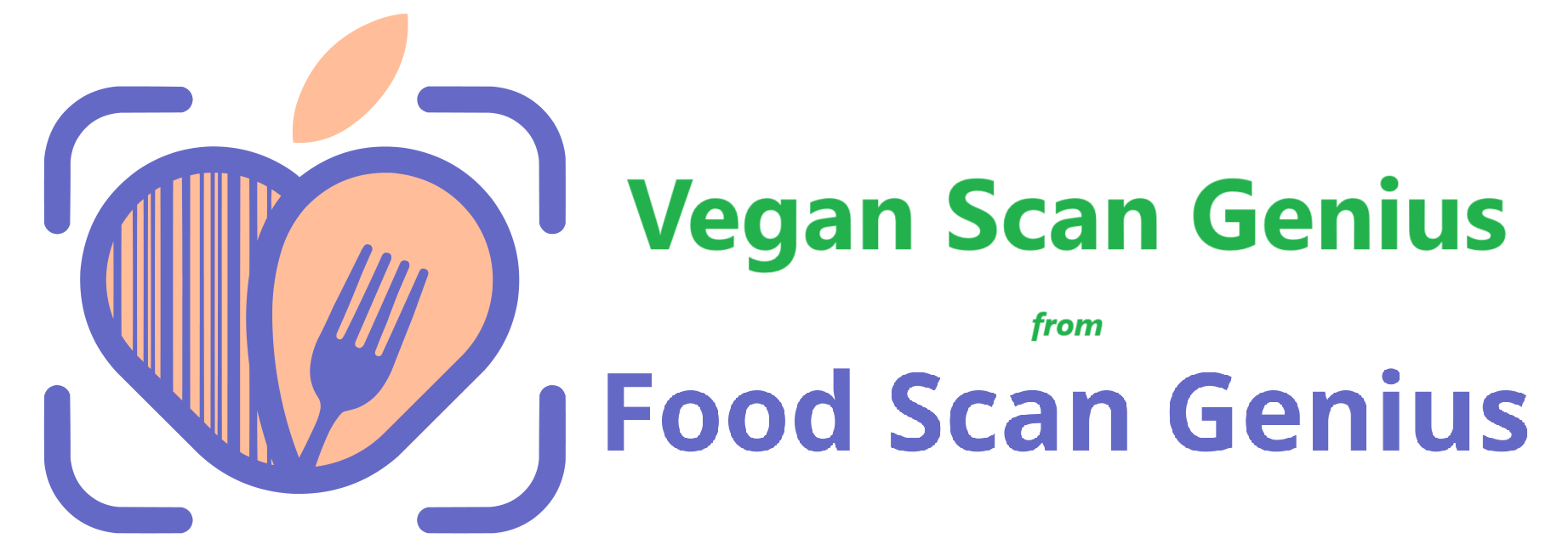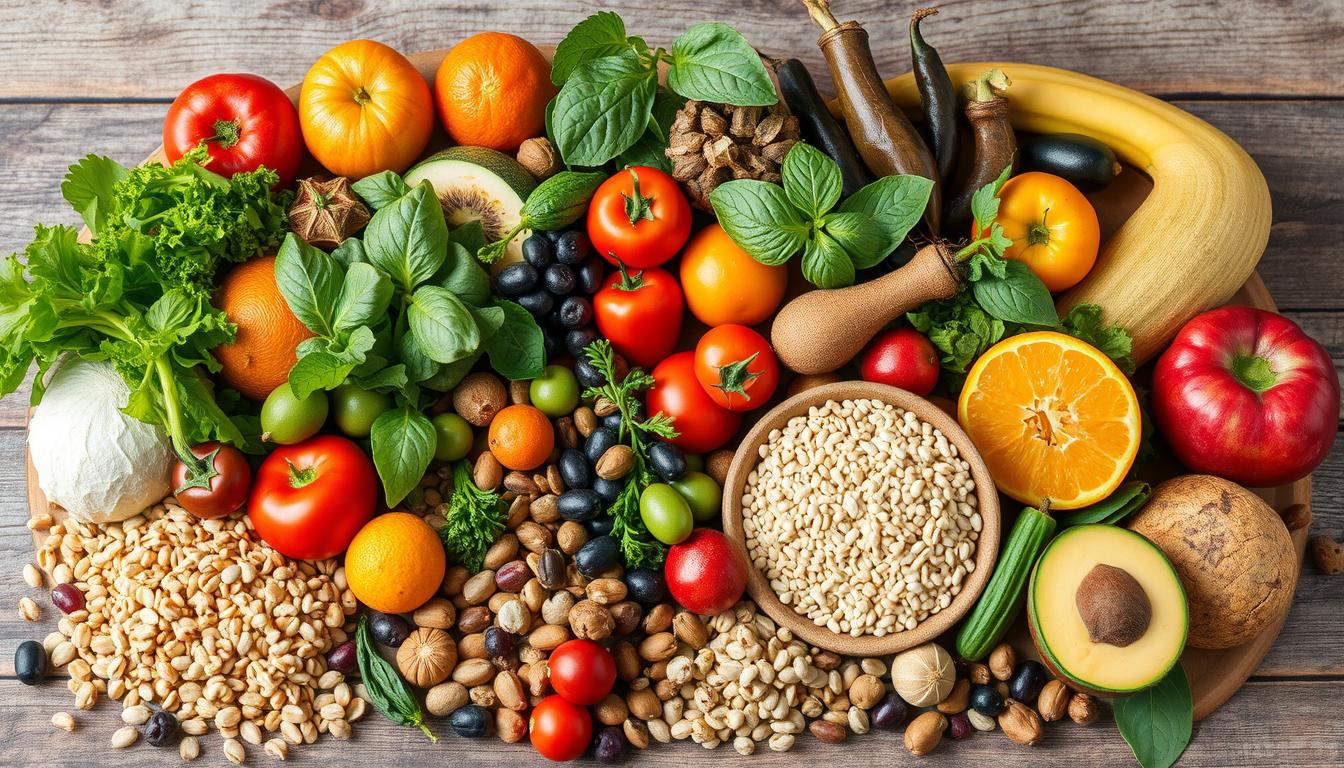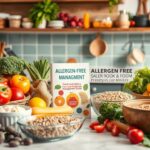Start an exciting journey into plant-based living! This guide is for everyone, whether you’re new or already vegan. It covers cruelty-free lifestyle and ethical eating. You’ll learn about plant-based nutrition, health benefits, and how it helps the planet. Are you ready to change how you see food and live more kindly? Key Takeaways Discover the core principles of a balanced vegan diet for optimal health. Explore the remarkable health advantages of plant-based living. Learn to navigate social situations and dining out as a vegan. Understand the environmental impact of your food choices and how to reduce your carbon footprint. Utilize cutting-edge tools like Food Scan Genius to simplify your vegan shopping experience. Understanding the Fundamentals of a Vegan Diet Explore the basics of vegan diets and learn about plant-based nutrition. Whether you’re starting out or want to know more, we’re here to help! Defining Plant-Based Nutrition A vegan diet focuses on eating whole, unprocessed plant foods. This includes fruits, veggies, grains, legumes, nuts, and seeds. It excludes animal products like meat, dairy, and eggs. Key Principles of Vegan Eating Focus on whole, unprocessed foods Ensure a balanced intake of essential nutrients Experiment with new plant-based ingredients and recipes Respect and support ethical and sustainable food systems Common Misconceptions Let’s clear up some myths about vegan diets. A well-planned vegan diet can give you all the nutrients you need. With the right knowledge, switching to plant-based nutrition can be healthy and fulfilling. “A balanced vegan diet can absolutely provide all the nutrients the human body needs.” – Registered Dietitian, Jane Smith Understanding the basics is key to successful ethical eating. Find what works for you and your needs. Next, we’ll look at the health perks of a vegan lifestyle! Health Benefits of Plant-Based Living Choosing a plant-based lifestyle brings many health benefits. It can improve your heart health and boost your energy. This way of eating is not only good for you but also for animals and the planet. A plant-based diet can lower your risk of heart disease. It does this by cutting out animal products high in fat and cholesterol. This helps keep your blood pressure and cholesterol levels in check, making your heart healthier. But there’s more. Eating plants can also lower your risk of type 2 diabetes, some cancers, and even brain decline. Plant foods are full of antioxidants, fiber, and essential nutrients. These help your body work better and stay healthy. Plant-based living also helps the environment. By eating fewer animal products, we reduce our carbon footprint. This makes our planet healthier, too. It’s good for us and the Earth. “Eating a plant-based diet is one of the most powerful ways to improve your health and reduce your environmental impact.” – Dr. Michael Greger, author of “How Not to Die” So, if you want to feel more energetic, support your heart, or help the planet, try a plant-based lifestyle. It’s a step towards a healthier, greener future. Getting Started with a Vegan Diet Starting a vegan lifestyle is exciting and rewarding. We’ve put together a guide to help you. It covers stocking your pantry, equipping your kitchen, and meal planning. Follow these tips to make tasty plant-based meals easily! Pantry Essentials A well-stocked vegan pantry is key for easy meals. Here are the must-haves: Whole grains: quinoa, brown rice, oats, bulgur Legumes: lentils, chickpeas, black beans, kidney beans Nuts and seeds: almonds, walnuts, chia seeds, flaxseeds Nut butters: peanut, almond, cashew Healthy oils: extra-virgin olive oil, avocado oil, coconut oil Spices and herbs: cumin, turmeric, paprika, basil, oregano Condiments: soy sauce, Dijon mustard, balsamic vinegar Non-dairy milk alternatives: almond, soy, oat, coconut Kitchen Tools and Equipment The right kitchen tools make vegan cooking easier and more fun. Here are the essentials: High-quality chef’s knife Blender or food processor Instant Pot or slow cooker Spiralizer for veggie noodles Baking sheets and casserole dishes Reusable storage containers Meal Planning Basics Learning to plan meals is crucial for a balanced vegan diet. Here are some tips: Schedule a weekly meal planning session Incorporate a variety of plant-based nutrition Prepare components in advance for easy assembly Embrace leftovers and batch cooking Utilize online resources and meal planning apps With these basics, you’ll be making delicious, healthy vegan meals in no time. Happy cooking! Essential Nutrients for Vegans Starting a plant-based diet means knowing what nutrients your body needs. It’s key to get these from your vegan food choices. Let’s look at the important vitamins and minerals you should focus on. Protein Power Protein is vital for muscle, repair, and energy. Many think it’s hard to get enough on a vegan diet. But, there are many plant-based foods that offer plenty of protein. Legumes, nuts, seeds, and whole grains are great choices. Vitamin B12 Boost Vitamin B12 is a big concern for vegans. It’s important for blood cells, nerves, and energy. Since it’s mainly in animal foods, vegans need to take supplements or eat fortified foods. Iron and Zinc Essentials Iron and zinc are also key for vegans. Iron helps carry oxygen, and zinc boosts the immune system and healing. Eat iron-rich foods like spinach, lentils, and tofu. Pair them with vitamin C foods to better absorb iron. Calcium for Strong Bones Calcium is essential for strong bones. Luckily, there are many plant-based nutrition sources. Leafy greens, fortified milks, and tofu are all good options. By eating a variety of plant-based foods, you can meet your nutritional needs. This way, you can enjoy the health benefits of a vegan diet. “A balanced vegan diet can provide all the nutrients your body needs to function optimally.” Plant-Based Protein Sources and Alternatives Exploring plant-based protein is exciting! Whether you’re new to veganism or a pro, getting enough protein is key. There are many tasty and healthy options to try. Complete Protein Combinations Getting complete proteins on a vegan diet is easy. Mix different plant-based foods to get all the amino acids your body needs. Here are some great combos: Rice and beans





